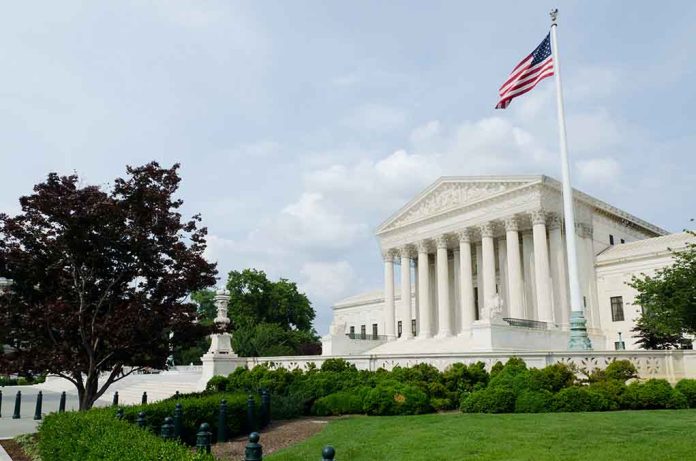
The Supreme Court’s decision not to review a challenge to President Joe Biden’s $15 minimum wage order for federal contractors leaves the future of the case in uncertainty.
At a Glance
- The Supreme Court has declined to look over a challenge to Biden’s $15 minimum wage for federal contractors.
- The federal appellate courts are divided on the legality of the wage order.
- The Tenth Circuit upheld Biden’s authority, while the Ninth Circuit ruled against it.
- Businesses argue the Procurement Act doesn’t authorize presidential minimum wage mandates.
- Pacific Legal Foundation vows to continue challenging such executive actions.
Supreme Court’s Decision Leaves Wage Mandate Intact
In a move that has significant implications for federal contractors, the U.S. Supreme Court has opted not to review a challenge against President Joe Biden’s executive order mandating a $15 minimum wage. This decision, for the time being, leaves in place a contentious policy that has divided federal appellate courts and sparked debate about the extent of presidential authority.
The challenge, spearheaded by the Colorado River Outfitters Association and Arkansas Valley Adventures, was previously dismissed by the Tenth Circuit Court. This appellate court upheld the President’s power to implement such a wage mandate under the Procurement Act, a decision that stands in stark contrast to a ruling by the Ninth Circuit in November 2024.
The Supreme Court declined to examine whether President Joe Biden acted within his authority to issue a $15 minimum wage for federal contractors, a legal issue on which federal appellate courts are divided. https://t.co/e3nfXIiDz4
— Bloomberg Law (@BLaw) January 14, 2025
Legal Battle and Circuit Split
The Supreme Court’s refusal to hear the case, known as Bradford v. US Dep’t of Labor, U.S., No. 24-232, has cemented a split between federal appeals courts. This division creates uncertainty for businesses operating on federal lands and highlights the complex legal landscape surrounding executive power in labor regulations.
The Biden administration maintains that the wage order falls within presidential authority under the Federal Property and Administrative Services Act. However, businesses affected by the mandate argue that this interpretation represents an overreach of executive power, potentially setting a concerning precedent for future presidential actions.
Implications for Businesses and Future Challenges
The decision not to review the case leaves the issue in a state of uncertainty. Businesses operating on federal land fear that the $15 minimum wage mandate could result in higher operational costs, potentially forcing them to undergo significant structural changes to remain viable.
The Pacific Legal Foundation, which represented the plaintiffs in this case, expressed disappointment with the Supreme Court’s decision. The organization remains committed to challenging what it views as executive overreach, signaling that this may not be the end of legal battles surrounding the wage mandate.
As the debate continues, a third case challenging the mandate is pending in the Fifth Circuit. This ongoing legal action underscores the complexity of the issue and the potential for further judicial scrutiny of presidential authority in labor regulations. The Department of Labor and the Department of Justice have refrained from commenting on the case, leaving room for speculation about potential future developments in this contentious area of labor law.
Sources
- Justices Cement Biden’s $15 Federal Contractor Wage Rule for Now
- US Supreme Court won’t review Biden wage order for some federal contractors
- Supreme Court Rejects Challenge to Biden Federal Contractor Minimum Wage Order













